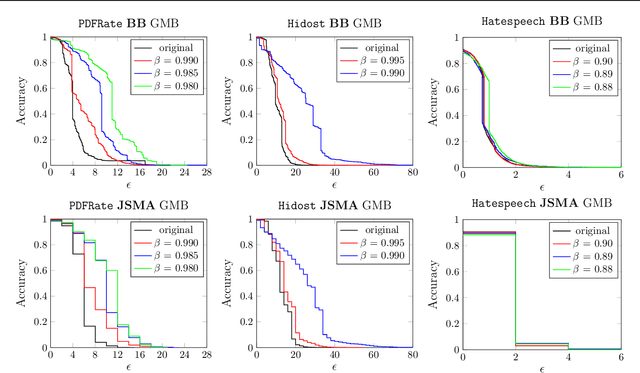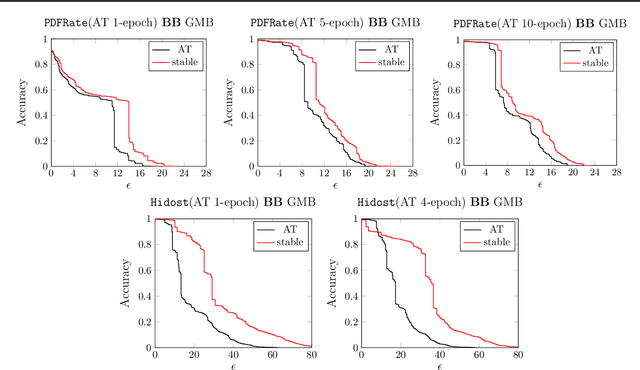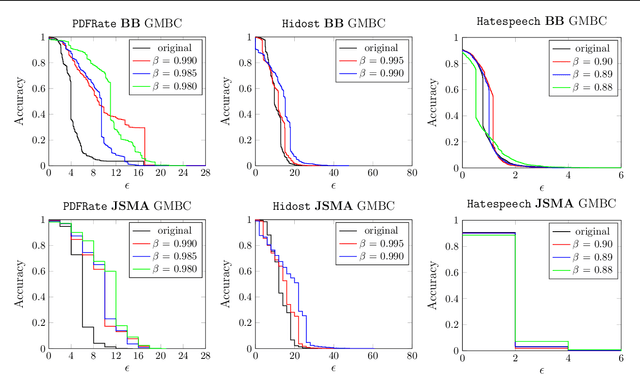Enhancing Robustness of Neural Networks through Fourier Stabilization
Paper and Code
Jun 08, 2021



Despite the considerable success of neural networks in security settings such as malware detection, such models have proved vulnerable to evasion attacks, in which attackers make slight changes to inputs (e.g., malware) to bypass detection. We propose a novel approach, \emph{Fourier stabilization}, for designing evasion-robust neural networks with binary inputs. This approach, which is complementary to other forms of defense, replaces the weights of individual neurons with robust analogs derived using Fourier analytic tools. The choice of which neurons to stabilize in a neural network is then a combinatorial optimization problem, and we propose several methods for approximately solving it. We provide a formal bound on the per-neuron drop in accuracy due to Fourier stabilization, and experimentally demonstrate the effectiveness of the proposed approach in boosting robustness of neural networks in several detection settings. Moreover, we show that our approach effectively composes with adversarial training.
 Add to Chrome
Add to Chrome Add to Firefox
Add to Firefox Add to Edge
Add to Edge